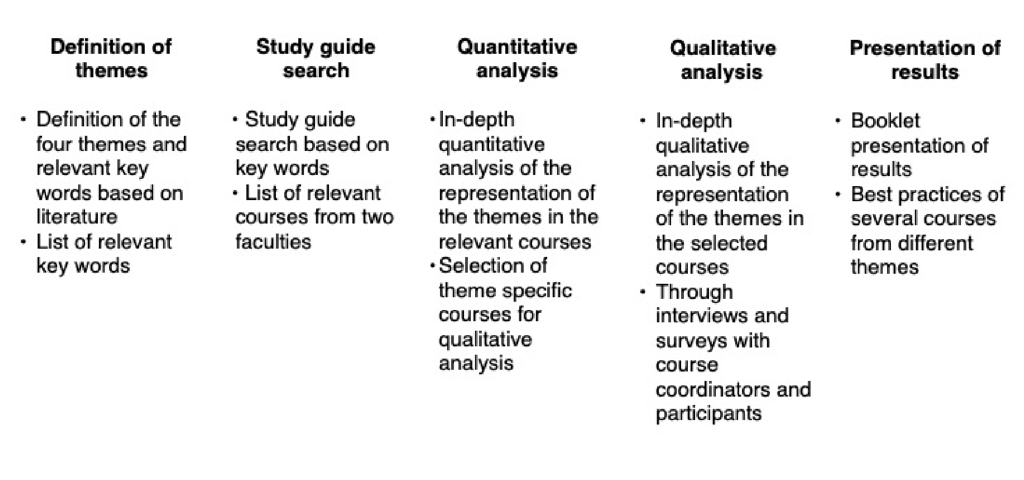Project introduction and background information
- Digital skills & computational thinking
- Ethics & responsible engineering
- Challenge-based education
- Entrepreneurial engineering education
This project aims to map the current efforts at the TU Delft surrounding the previously mentioned themes. To make the project manageable, the scope of this project was limited to three faculties per topic.
Objective and expected outcomes
For each topic, the design faculty of Architecture and the Built Environment and the science faculty of Electrical Engineering, Mathematics & Computer Science were analysed. The two faculties were selected not only for being exemplary samples of the engineering and science field of TU Delft, but also for their invariability in the academic curriculum. Subsequently, a third faculty was chosen per topic based on its relevance for that specific topic. The global timeline of this research can be found in the figure below and consists of five major phases. A general definition of the various themes was compiled based on literature reviews. From here, certain search terms were derived that accurately represent the various themes and their different components. Using these keywords, the study guide was searched for topic-specific courses, which resulted in a list of courses that could potentially be tied to a particular theme. Subsequently, the study guide course descriptions of these courses were analysed and the courses were assessed on whether they indeed reflected the specific topic or not. To ensure validity and reliability of the method used, these assessments were repeated by multiple parties. The quantitative analysis of the selected courses is currently ongoing. Here, the courses are discussed in more detail to answer the following questions:
Where and to what extent are the different themes addressed?
Which learning objectives will ensure the implementation of the engineering education skill?
How are the particular skills assessed?
In the upcoming phase, a start will be made with the qualitative assessment. This involves verifying whether the information in the study guide also corresponds to what happens in practice.


Results and learnings
The results of the research will be presented in a booklet. This will include a shortlist of subjects with a number of best practices for each theme.
